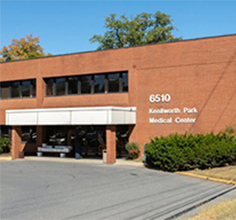
Food is more than about mere sustenance; it's intertwined with our emotions, cultures, and daily rituals. Our relationship with food can vary widely, from deep emotional connections to purely functional eating habits.
However, cultivating a healthy relationship with food is essential for overall well-being. In this brief article brought to you by Southern Maryland Medical Group, we'll explore strategies and practices that promote a positive and balanced relationship with food.
If you’d rather consult with a licensed primary care physician about your diet and health, then call Southern Maryland Medical Group to schedule an appointment or arrange a walk-in with one of our primary care doctors for as soon as possible.
There are many factors and dynamics to consider when thinking about food relationships. For example, there’s emotional versus mindful eating.
Emotional eating involves turning to food for comfort, stress relief, or as a coping mechanism for emotions. On the other hand, mindful eating focuses on being present and aware of food choices, eating habits, and hunger cues without judgment or distraction.
There are also cultural influences. Our cultural backgrounds play a significant role in shaping our food preferences, traditions, and eating behaviors. Understanding and appreciating cultural influences can enrich our relationship with food and promote a diverse and balanced diet.
Furthermore, social settings, such as family meals, celebrations, and gatherings, often revolve around food. Navigating social pressures and expectations while maintaining healthy eating habits is key to a harmonious food relationship.
We have a few tips that can improve your relationship with food. These are:
Finally, if you're struggling with disordered eating patterns, emotional eating, or other food-related challenges, consider seeking support from a registered dietitian, therapist, or healthcare provider. They can provide personalized guidance and strategies to improve your food relationship.
Nurturing a healthy relationship with food is a journey of self-discovery, mindfulness, and balance. By practicing mindful eating, embracing variety and balance, listening to your body's cues, challenging food myths, and creating a positive food environment, you can cultivate a positive and sustainable food relationship that promotes overall health and well-being.
If you’d like to consult and speak with a licensed physician, then call Southern Maryland Medical Group to schedule a convenient appointment today. We are also happy to arrange a walk-in for as soon as possible.
Southern Maryland Medical Group has 3 convenient locations to provide professional medical care services in the Southern Maryland area. Call or schedule an appointment with one of our locations to get medical care help.

5801 Allentown Road, Suite 400 Camp Spring, MD 20746
Phone: 301-868- 0150
Billing Inquiries: 301-552-1270
Fax: 301-868-0243

7500 Greenway Center, Dr #1200 Greenbelt, MD 20770
Phone: 301-486-7580
Billing Inquiries: 301-552-1270
Fax: 301-486-7581

6510 Kenilworth Ave, Ste 1400, Riverdale MD 20737
Phone: 301-618-0771
Billing Inquiries: 301-552-1270
Fax: 301-618-0772